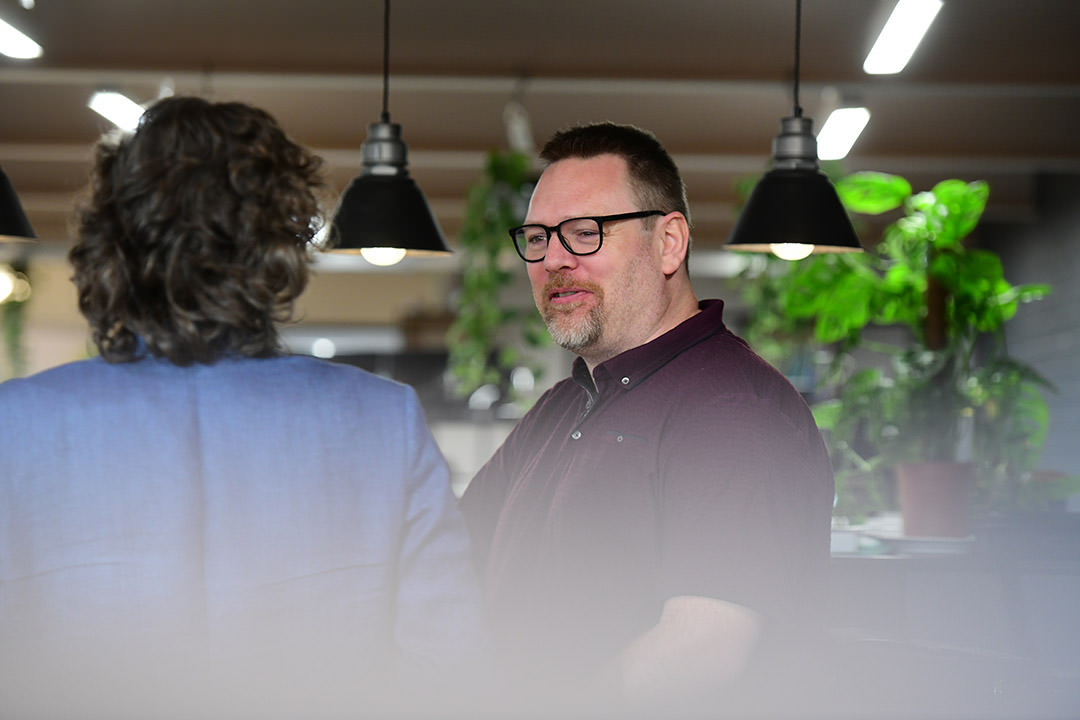Creating an open and inclusive environment with our clients

The language we use should never, deliberately or otherwise, exclude people
At dxw, we have a responsibility to make sure the people and organisations we work with understand the value of what we do and how we do things.
We do this by sharing our progress and learning in easily understandable and digestible week notes and blog posts, using clear language during sprint planning, stand-ups and show and tells, and creating opportunities for everyone involved to ask questions so we can share knowledge and develop our ideas.
We work with people who are specialists in their own fields and their opinions are incredibly valuable to us. It’s the reason we want to involve our clients in every aspect of our work.
Be inclusive when working in a team
We recently worked with the Government Legal Department to iterate the journey a user takes to log in to gld.digital, a website offering legal guidance for civil servants and hosted on our secure GovPress platform.
During our work together, we received some really positive feedback from the team at Government Legal, the language we used was really clear and our clients felt they understood what we were doing and how we were going to do it.
This got me thinking about the different ways we already are, and can be more, inclusive when working in a team.
Explain technology in the simplest way and go from there
dxw value ourselves for being curious, diverse and creative. We help each other to learn and improve and we’re sensitive to each others’ needs. The language we use should never, deliberately or otherwise, exclude people from being part of a team. Most of the time we do this naturally and it’s something I value a lot.
We build new products and iterate existing services that vary in complexity. Our clients and stakeholders make decisions about these services and we’re often in a position where we need to describe our approaches to others who don’t have the same technical understanding as us.
Explaining concepts in a way that includes everyone builds the capability of our clients and enables them to make better decisions. We avoid using jargon or abbreviations, for example, to describe how we will implement a new feature or when talking about a piece of technology.
The people we’re working with who aren’t used to hearing technical terms are, more often than not, specialists in their own field with a wealth of knowledge. They should be given the space to understand and question the complexities and dependencies involved in building a service.
Allow time to adapt to a new way of working
We should apply the same thinking to how we introduce people to our way of working.
We understand the value of working in an agile way. Sprints ensure we set priorities and fair expectations about what can be done in a specific time frame, and know what it looks like to have finished something. They help us progress at a good pace and work better together too.
For some people, the word sprint is entirely new, let alone working in an agile way. We should spend the time to allow others to get a better grasp of the process and approach, and to become the champions for our way of working.
Create an open environment
It’s important to explain from the start that everyone’s opinion matters and we should all feel empowered to lead in our field.
We’ve all been in organisations where meeting discussions and decisions are steered towards the most senior person in the room. Different workplaces have different cultures, but at dxw we believe decisions should be made as a collective and openness is integral to ensuring this happens.
As facilitators, we have an opportunity to set the right tone and environment:
- understand how people like to work and include an opportunity for everyone to join a conversation, in a way that suits them
- create the space to ask questions, it’s time well spent
- continuously ask ‘why?’ and recognise when something is an assumption, not a fact
- create a shared understanding by repeating information back, even if you feel like you understand, sometimes others don’t and that’s okay
- try to avoid forming opinions, it creates bias
Understand your own limitations
Although it can feel difficult sometimes, it’s important that we all feel able to expose ourselves to different ideas, recognise and understand our shortcomings and be inquisitive.
If we’re uncertain about what someone else is describing or working on, it is more than likely there is someone else thinking the same thing. It’s okay to ask for more detail, it’s honest and will help you and the team you’re in to build a better shared understanding.
Aim for a sense of community
Working openly and in a way that doesn’t exclude anyone means we get the best from the team. It creates a sense of community, where it’s okay to ask questions and get things wrong and there’s a shared understanding and commitment to the work.